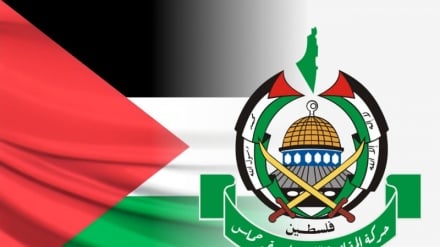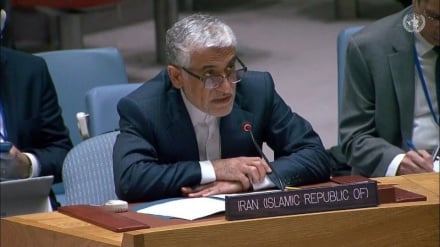Quds, Birthplace of Divine Religions (4)
Bayt ul-Moqaddas or al-Quds (the city known as Jerusalem by non-Muslims) owes its sanctity, esteem and dignity to the emergence of divine religions, because throughout history, it has been the center of propagation and mission of great divine messengers. The edifices left behind from great Prophets indicate the lofty spiritual value of the city. The high status of this holy land has a historic root among Muslims.
Bayt ul-Moqaddas was the first Qibla (focal point of prayer) for Muslims. For 13 years after the start of his mission as the divine messenger, Prophet Mohammad (SAWA) lived in Mecca. Throughout this period and 17 months after migration to Medina, the noble Prophet and Muslims held daily obligatory prayers towards al-Aqsa Mosque in the city of al-Quds. Al-Aqsa Mosque is also important for another reason; namely, the Me'raj (ascension) of the Prophet of Islam from Masjid al-Haram (Holy Mosque) to Al-Aqsa Mosque and from there to the heavens. Addressing the issue of al-Aqsa Mosque is the renewed raising of the foremost issue of the Islamic world and the great oppression inflicted on this land. The US president Donald Trump's decision to recognize Bayt ul-Moqaddas as the capital of a fabricated regime is an opportunity to have a look at the status and importance of this holy land.
This is not the first time that Bayt ul-Moqaddas is the scene of the Zionist invasion with the help of its American and European supporters and certainly Bayt ul-Moqaddas will return to its genuine owners. In the previous program, we spoke about the Crusades and the 7 huge wars and how this sacred land changed hands between Muslims and Christians. After the end of the 7th Crusade and the death of the last Ayyubid king, a dynasty of Mamluks (slaves) took over Bayt ul-Moqaddas for some 3 centuries. They repelled the Mongol army's assault on the region and killed survivors of Crusaders in Akka. Meanwhile, the Ottoman dynasty was formed with long wars and great conquest of Osman Ghazi in the battle against Mongols and Greeks. He died in 1326 and was replaced by his successors till the turn of Sultan Mohammad Fateh (Conqueror) came. In 1453 Sultan Mohammad took control of Constantinople, the capital of Byzantine Roman Empire and the most important center of the Crusaders' power, chasing the Crusaders across Europe and continuing his conquests in Europe, Asia and Africa.
The Ottoman kings ruled over the entire land of Palestine including the holy Quds for more than 4 centuries. The influence and power of the Ottoman dynasty and expansion of its dominance over Asia, Africa and parts of Europe were of concern to European countries such as Britain, France, Russia and Italy and they severely feared domination of Ottoman rule.
The Europeans were seeking to stop the expansion of Ottoman Empire and overthrow them by any means. In the meantime, Britain played a special role in weakening the Ottoman Empire. On the other hand, the Sultans and agents of the Ottoman rule in the imperial colonies were oppressive and unjust to the people; hence the peoples under the Ottoman rule one by one revolted against the Ottoman rulers. In the late 19th century, numerous revolts took place in Palestine, especially in al-Quds, and the British regime which till then pursued the policy of protection and preservation of the Ottoman territorial integrity in Asia, suddenly shifted from this policy and opposed the Ottoman government. The British regime hatched conspiracy to dominate the Suez Canal, continue its influence in India, and overthrow the Ottoman rule, as a major side of the Allied Powers in World War I, bribed and hoodwinked Arab rulers through signing of pseudo-contracts and treaties, making them hopeful of its support. Stimulating Arabs against the Ottoman government in 1916, the British incited them to revolt. Before the British move in Palestine to dominate the land, Zionists began a massive effort to form a Jewish state. Between 1882 and 1897, the global Zionism attempted to resettle Jewish immigrants in Palestine, but made no significant progress and failed once more. But with every defeat, the British added to their efforts against the Ottoman Empire as they have been the masters of the policy of "sow discord and rule".
In 1896 the Austro-Hungarian journalist, father of modern political Zionism Theodor Herzl, formulated the Zionist issue and in 1897 established the Zionist Die Welt newspaper as the official organ, publisher and disseminator of Zionist thoughts. In the same year, on Herzl's initiative, the first Zionist Congress was held in Basel, Switzerland. Articles were approved in the conference but the foremost issue mentioned in the final statement was that the ultimate goal of Zionism was to fabricate a land in Palestine for all Jews in the world and that the statement would be approved and guaranteed by international laws. Among Herzl's statements these phrases are worthy of note: "It is essential that the sufferings of Jews become worse. This will assist in realization of our plans. I have an excellent idea. I shall induce anti-Semites to liquidate Jewish wealth. The anti-Semites shall be our best friends."
The Zionist Congress did not refer to the land of Jews as country because it would undoubtedly arouse protest and resistance of Palestinian people and others although the Jews attending the congress meant usurpation of the land of Palestine. In 1916, the British and French regimes agreed to divide the Asian territories of the Ottoman Empire in a treaty known as the Sykes-Picot Agreement which was signed by the British diplomat Mark Sykes, and his French counterpart Georges Picot. The agreement was also announced to the Russian Tsarist government and the government agreed with the agreement by getting certain concessions.
On April 16, 1916, an agreement was signed between the three governments of Britain, France and Russia, which became known as the Sazonov Treaty and supplemented by the Sykes-Picot Agreement. Under this treaty, the lands of the Ottoman state were divided between the three governments while the British share were the southern Iraqi region, the city of Baghdad, the port of Haifa and Akka in Palestine. According to another contract called "Clemenceau Lloyd George", the British regime's share became wider. Article Six of the treaty implies the internationalization of the Palestinian issue.
Concurrent with the outbreak of World War I, as masters of discord among Muslims, the British tried to force Arabs to revolt against Ottomans. Promising support for Arabs, the British also promised to create alliance of Arab countries against the Ottoman state. Therefore, the British started negotiations with the Najdi Bedouin Ibn Saud, and Sharif Hussein ruler of Mecca. Sharif Hussein, who was elected by the Ottoman government, was an ambitious man. Deceived with Britain’s provocation, using Arab dissatisfaction with the Ottoman government, on June 5, 1916, he rose up against the Ottoman Empire, and on November 2 of the same year officially called himself the Sultan of Arab countries.
The British regime was very worried and expressed opposition to Hussein's reign in view of Sykes-Picot's contradiction with Hussein and British treaty. In 1917 Sharif Hussein became aware of British betrayal. The confidential documents of the contract were published by the newly established Soviet government, and the Ottomans informed Sharif Hussein and warned him of British trick. The Turks asked Sharif Hussein to cut off relations with Britain. Sharif Hussein became worried and asked for explanation by the British. But he did not get a satisfying answer. In the next program, you will listen to continuation of developments in Bayt ul-Moqaddas after the partition of the Ottoman Empire.
FK/RM/MG


